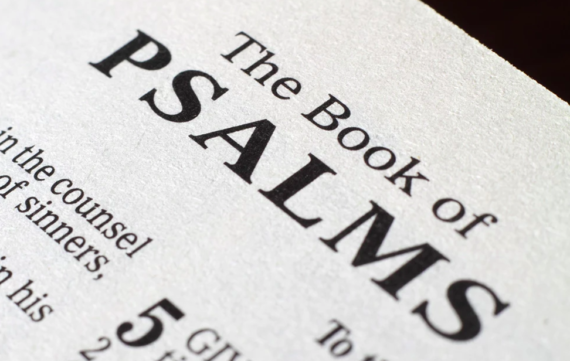Psalm 13
The most outstanding feature of this Psalm is its simplicity. I am glad that I felt compelled to attempt a lesson on this Psalm. We need simple models. We need certain objections answered, and this Psalm answers some of those. Psalm 13 is a model of straightforward supplication.
Bring our Complaints
It shows us that we should bring our complaints to God.






“How long, O Lord? Will you forget me forever? How long will you hide your face from me? 2 How long must I take counsel in my soul and have sorrow in my heart all the day? How long shall my enemy be exalted over me?” (1-2)
A brother in Oklahoma used to say, “We can complain to God, but we should never complain of God.” Perhaps we should not, but the truth is that we do. And the Bible is full of examples of people who do complain of God.
“How long?” is a question that often comes to mind. We wonder why things happen at all and we wonder why they last so long. Jeremiah was full of such questions. At times he even makes accusations against God. He says, “O Lord, you have deceived me, and I was deceived; you are stronger than I, and you have prevailed. I have become a laughingstock all the day; everyone mocks me” (Jer 20:7).
We ought not to feel this way, but sometimes we do feel this way. The Bible is telling us to be honest with God. Both here is Psalm 13, and in Jeremiah 20, being honest with God about our doubts helps us get over them. He knows what we are thinking. We might as well tell him honestly.
Make Requests
We should also make our requests of God.
“Consider and answer me, O Lord my God; light up my eyes, lest I sleep the sleep of death, 4 lest my enemy say, “I have prevailed over him,” lest my foes rejoice because I am shaken” (3-4).
Do you not find it annoying to have someone bring a complaint with no clear request. Don’t you sometimes want to ask a complainer, “What do you suggest be done about it?”
Sadly, many prayers are nothing but wish lists — and that is a shame. There ought to be praise and thanksgiving in our prayers. But there is a place for requests. We should never feel ashamed of making requests of God. Our requests show our dependence. Our requests demonstrate our belief in his greatness. We should not play “let’s make a deal” with God, as if we are controlling him; but we should make requests of God.
Confidence
We should express confidence in God.
“But I have trusted in your steadfast love; my heart shall rejoice in your salvation. 6 I will sing to the Lord, because he has dealt bountifully with me” (5-6).
Having made our requests we should show confidence in the Lord, knowing that he will do what is truly best. He may not do what we would prefer, except that we should prefer what he chooses to do. Obviously, this is an attitude continually demonstrated in scripture, especially by Jesus. “Again, for the second time, he went away and prayed, ‘My Father, if this cannot pass unless I drink it, your will be done’” (Mt 26:62). It is only with this attitude that we will be ready to receive his blessings when they come.
Psalm 13 is a model not the model. It is not that we ought always to pray just this way. There is no one set prayer model for every occasion. But as a model for times of distress, one could hardly do better — bring your complaints, make your requests, express confidence in God.
We have reason to be much more confident than any of the Psalmists. They had experiences of God’s blessing to help them, but they did not know the full extent of his love for them. We can add one thing to this model that was not available for them. We can approach God in the name of Jesus, and in using that name have greater confidence even than they.
Unless, of course, we are not in Christ.

